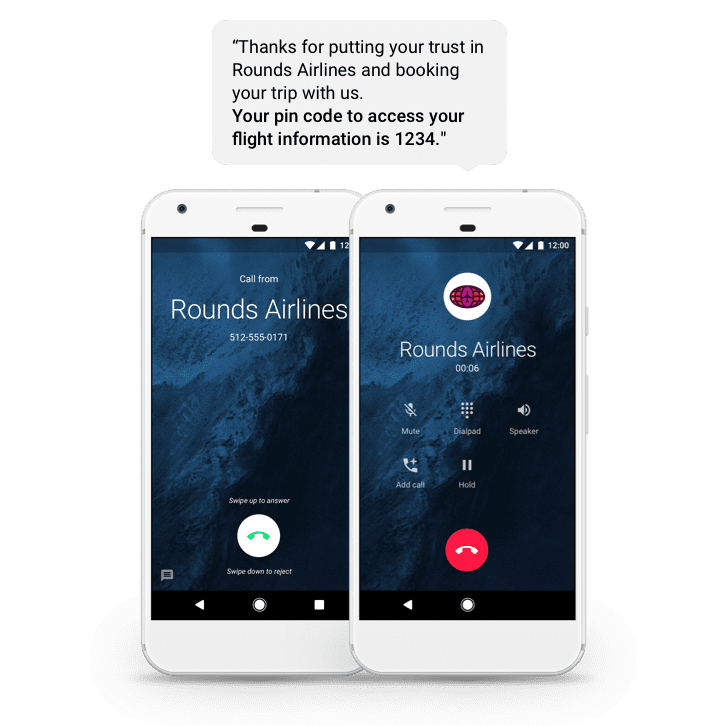Send OTP codes with text to speech calls using Sinch and Node.js

In this tutorial I will show you how to use node.js to build a text to speech call that reads out pin-codes. To read more about the Sinch callout API please see the documentation.
Other use cases
Common use cases for this type of call are weather- and fraud alerts, when you suspect that an SMS is not delivered.
What you need to get started
- Node development environment
- Application - key and secret. Get one here if you don’t have one already - Sign up .
- Some credits on your account. Set up your phone on the dashboard and my boss will give you $2 to get you started !
Code
For this code snippet I will use the sinch-request npm package to sign the requests. This package is not required but it makes life a lot easier. Below code makes a call to +15551234567 and play “Your pin code is 1234” in US English when user is answering the call.
var sinchRequest = require("sinch-request");
var https = require("https");
var creds = { key: "your key", secret: "your secret" };
var bodyData = JSON.stringify({
method: "ttsCallout",
ttsCallout: {
destination: { type: "number", endpoint: "+15551234567" },
domain: "pstn",
custom: "customData",
locale: "en-US",
prompts: "#tts[Your pin code is 1234]",
},
});
var options = {
method: "POST",
host: "callingapi.sinch.com",
port: 443,
path: "/v1/callouts",
data: bodyData,
};
sinchRequest.applicationSigned(options, creds);
var req = https.request(options, function (response) {
var data = "";
response.on("data", function (chunk) {
data += chunk;
});
response.on("end", function () {
console.log("Response body: " + data);
//here you can i.e save your callid,
});
});
req.end(options.data);Next steps
In the next tutorial I will show you how to make IVR menus that enable you to collect input from the user.